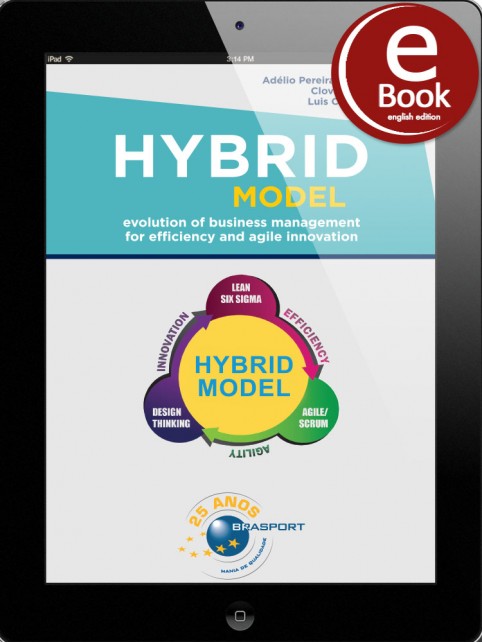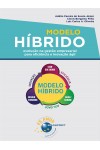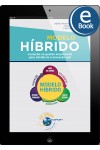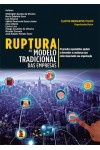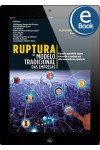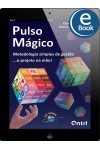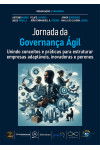eBook: Hybrid Model
- Catálogo: E-books da Brasport
- Modelo:EB308
- Categorias
- - e-Books
- - Negócios
- - Gerenciamento de Projetos
- - Informática e Tecnologia
- Disponibilidade:
- R$ 47,00
Venda de e-book Compre na Amazon Compre no Google Play
eBook: Hybrid Model: Evolution of Business Management for Efficiency and Agile Innovation
“Congratulations to all for your excellent efforts in writing this book. At this time of the crisis caused by the Covid-19 pandemic, whatever methodology we prefer to use, we must all come together to create better and kinder ways to work and live. We must also gather many different points of view and ways of thinking to solve the problems we are all now experiencing throughout the world. Once again, I would like to congratulate you and wish you all the best!”
Karyn Ross
Lean International Specialist & Consulting
“One of the main challenges that we have to overcome these days is the dogmatic view based on methodologies and methods. Often so deeply ingrained in the professionals are the methods that they simply forget what really matters, and what needs to be done to turn the idea into a result. The transformation of ideas into results requires dedication, motivation, passion, and willpower. Indeed, these topics are not necessarily learned by using a specific method. Works like this book by Clovis Bergamo allow for a broader understanding of the different paths that can be taken to “Get Things Done”.”
Ricardo Viana Vargas
Former Chairman, Project Management Institute
Former Director, Infrastructure and Project Management at the United Nations (UNOPS)
“The world is changing at a speed never seen before, and technology is undoubtedly the main element that has brought about this transformation. In this global and highly competitive environment, companies seek to deliver an experience that is increasingly attractive and of greater value to its customers, as well as slashing operating costs, transforming its operations with increasingly efficient and touchless processes. This work is of great value in this underlying scenario, as this work contributes to these two main objectives in a way that is practical, agile, customer-focused and profitable for companies. I hope you enjoy reading it!”
Paulo Roberto Siqueira Pinto Junior
Operations Director – Business Transformation Leader for
Brazil and Latin America – Accenture
“This book helps to break paradigms, leading us to more up-to-date and disruptive thoughts about differentiated organizations and professionals, within an increasingly demanding market, allowing clear vision of the integrated application of Lean Six Sigma, Agile and Design Thinking methodologies. This widens the vision in business, presenting extremely relevant content to this world beset with so much volatility, uncertainties, complexity, and ambiguities – this is VUCA. Don't miss the opportunity to browse the transformative pages of this book.”
Ricardo Cancela
Chairman of LeaderX & BBX, entrepreneur and enthusiast of human revolutions
“Currently, the need for companies to work with excellence in all their lines of business is getting stronger and more evident. The elimination of waste, thereby creating value for its customers, empowering employees, reducing procedure variability, slashing costs and solving problems from the root. This means that several philosophies and methodologies intertwine. This book brings a structured and disruptive reflection, stirring up thoughts about what is traditional, showing that the cohesion and coexistence of these philosophies and methodologies in favor of operational and organizational excellence is indeed possible.”
Danilo Vilar Teixeira
Head of Continuous Improvement – Supply Chain
Grupo Pão de Açúcar Group (GPA)
“Congratulations to all for your excellent efforts in writing this book. At this time of the crisis caused by the Covid-19 pandemic, whatever methodology we prefer to use, we must all come together to create better and kinder ways to work and live. We must also gather many different points of view and ways of thinking to solve the problems we are all now experiencing throughout the world. Once again, I would like to congratulate you and wish you all the best!”
Karyn Ross
Lean International Specialist & Consulting
“One of the main challenges that we have to overcome these days is the dogmatic view based on methodologies and methods. Often so deeply ingrained in the professionals are the methods that they simply forget what really matters, and what needs to be done to turn the idea into a result. The transformation of ideas into results requires dedication, motivation, passion, and willpower. Indeed, these topics are not necessarily learned by using a specific method. Works like this book by Clovis Bergamo allow for a broader understanding of the different paths that can be taken to “Get Things Done”.”
Ricardo Viana Vargas
Former Chairman, Project Management Institute
Former Director, Infrastructure and Project Management at the United Nations (UNOPS)
“The world is changing at a speed never seen before, and technology is undoubtedly the main element that has brought about this transformation. In this global and highly competitive environment, companies seek to deliver an experience that is increasingly attractive and of greater value to its customers, as well as slashing operating costs, transforming its operations with increasingly efficient and touchless processes. This work is of great value in this underlying scenario, as this work contributes to these two main objectives in a way that is practical, agile, customer-focused and profitable for companies. I hope you enjoy reading it!”
Paulo Roberto Siqueira Pinto Junior
Operations Director – Business Transformation Leader for
Brazil and Latin America – Accenture
“This book helps to break paradigms, leading us to more up-to-date and disruptive thoughts about differentiated organizations and professionals, within an increasingly demanding market, allowing clear vision of the integrated application of Lean Six Sigma, Agile and Design Thinking methodologies. This widens the vision in business, presenting extremely relevant content to this world beset with so much volatility, uncertainties, complexity, and ambiguities – this is VUCA. Don't miss the opportunity to browse the transformative pages of this book.”
Ricardo Cancela
Chairman of LeaderX & BBX, entrepreneur and enthusiast of human revolutions
“Currently, the need for companies to work with excellence in all their lines of business is getting stronger and more evident. The elimination of waste, thereby creating value for its customers, empowering employees, reducing procedure variability, slashing costs and solving problems from the root. This means that several philosophies and methodologies intertwine. This book brings a structured and disruptive reflection, stirring up thoughts about what is traditional, showing that the cohesion and coexistence of these philosophies and methodologies in favor of operational and organizational excellence is indeed possible.”
Danilo Vilar Teixeira
Head of Continuous Improvement – Supply Chain
Grupo Pão de Açúcar Group (GPA)
| Comprimento | 0 |
| E-ISBN | 9786588431832 |
| Edição | 1 |
| Formato | ePUB |
| Idioma | Inglês |
| Lançamento | 25/10/22 |
| Largura | 0 |
| Lombada | 0 |
| Páginas | 268 |
| Ano | 2022 |
| Sumário | Introduction 1. The evolution of methodologies of excellence 1.1. Methodologies of Excellence 1.1.1. Quality & Productivity (Efficiency) 1.1.1.1. PDCA (Plan, Do, Check, Act – Plan, Run, Check, Act) 1.1.1.2. Lean 1.1.1.3. Six Sigma 1.1.1.4. Lean Six Sigma 1.1.1.5. Advances in the application of methodologies of excellence for productivity and quality 1.1.2. Innovation 1.1.2.1. Design Thinking 1.1.3. Project management 1.1.3.1. Agile 1.1.3.2. Scrum 1.2. Conclusion 2. The VUCA/BANI world and methodology selection 2.1. The VUCA/BANI World 2.2. The Project 2.2.1. “How” and “What” of a Project 2.2.2. The Selection of Methodologies 3. A hybrid model to attend the VUCA/BANI world 3.1. Worshipped Methodology x Adequate Methodology(ies) 3.2. Again, the VUCA/BANI World 3.3. Hybrid models of methodologies – the concept 3.4. Hybrid models of methodologies – examples and discussions 4. The hybrid model leveraging the organizations model 4.1. Vision, Mission etc. 4.2. Back to the VUCA/BANI World… 4.3. Agile Approaches 4.4. Ambidextrous Organizations 4.5. Ah… the Structures 4.6. The professional of the excellence of innovation areas 5. Hybrid DMAIC 5.1. Iterative Cycle – Hybrid DMAIC 5.1.1. Identify 5.1.2. Prioritize 5.1.3. Implement 5.2. Reflections about methodological efficiency 5.3. Iterative cycle dynamics 5.3.1. Identify 5.3.2. Prioritize 5.3.2.1. Structuring the Improvement Backlog 5.3.2.2. Prioritization of Improvements 5.3.2.3. Sprint composition 5.3.3. Implement 5.3.3.1. Sprint Planning 5.3.3.2. Sprint of Improvements 5.3.3.3. Daily Scrum 5.3.3.4. Sprint Review Meeting 5.3.3.5. Sprint Retrospective Meeting 5.4. Role of the Hybrid Iterative Cycle 6. Hybrid Define 6.1. Hybrid model applied to Define 6.2. Composition of Methodologies and Tools 6.3. Hybrid Define Iterative Cycle 6.3.1. Identify 6.3.1.1. Structuring the improvement project 6.3.1.2. Empathy and Voice of the Customer 6.3.1.3. Understand/See the Value Flow 6.3.1.4. Lean Value Analysis 6.3.2. Prioritize 6.3.2.1. Structuring the Improvement Backlog 6.3.2.2. Prioritization of Improvements 6.3.2.3. Composition of Define Sprint 6.3.3. Implementation 6.3.3.1. Sprint Planning 6.3.3.2. Sprint of Improvements 6.3.3.3. Daily Scrum 6.3.3.4. Sprint Review 6.3.3.5. Sprint Retrospective 7. Hybrid Measure 7.1. The hybrid model applied to Measure 7.2. Reflections on Methodological Efficiency 7.3. Hybrid Measure Iterative Cycle 7.3.1. Identify 7.3.1.1. Identify Process Variables 7.3.1.2. Analysis of the Measuring System 7.3.1.3. Analysis of measurement and statistical data 7.3.1.4. Identification of process critical variables 7.3.1.5. Improvements related to critical variables 7.3.2. Prioritize 7.3.2.1. Structuring the improvement backlogs 7.3.2.2. Prioritization of Improvements 7.3.2.3. Composition of the Sprint 7.3.3. Implement 7.3.3.1. Sprint Planning 7.3.3.2. Improvements Sprint 7.3.3.3. Daily Scrum 7.3.3.4. Sprint Review 7.3.3.5. Sprint Retrospective 8. Hybrid Analyze 8.1 The hybrid model applied to Analyze 8.2. Analyze hybrid iterative cycle 8.2.1. Identify 8.2.1.1. Critical Factors & Impact 8.2.1.2. Potential Risks and Root Causes of Failures 8.2.1.3. Critical Variable-Related Improvements 8.2.2. Prioritize 8.2.2.1. Structuring the Improvement Backlog 8.2.2.2. Prioritization of Improvements 8.2.2.3. Sprint Composition 8.2.3. Implement 8.2.3.1. Sprint Planning 8.2.3.2. Sprint of Improvements 8.2.3.3. Daily Scrum 8.2.3.4. Sprint Review 8.2.3.5. Sprint Retrospective 9. Hybrid Improve 9.1. The Hybrid Model Applied to Improve 9.2. Improve Hybrid Iterative Cycle 9.2.1. Identify 9.2.1.1. Best solutions (value flow and technologies) 9.2.1.2. Optimized operating conditions 9.2.1.3. Most impacted solutions and conditions 9.2.2. Prioritize 9.2.2.1. Composition of the Backlog of Improvements 9.2.2.2. Prioritization of Improvements 9.2.2.3. Composition of Improve Sprint 9.2.3. Implement 9.2.3.1. Sprint Planning 9.2.3.2. Sprint of Improvements 9.2.3.3. Daily Scrum 9.2.3.4. Sprint Review 9.2.3.5. Sprint Retrospective 10. Hybrid Control 10.1. The Hybrid Model applied to Control 10.2. Hybrid Control Iterative Cycle 10.2.1. Identify 10.2.1.1. Controls 10.2.1.2. Rollout Opportunities 10.2.1.3. Replication Opportunities 10.2.2. Prioritize 10.2.2.1. Backlog Composition of Improvement & Controls 10.2.2.2. Controls & Improvement Prioritization 10.2.2.3. Controls Sprint Composition 10.2.3. Implement 10.2.3.1. Sprint Planning 10.2.3.2. Conclusion of the Project & Knowledge Management 10.2.3.3. Improvement Sprint 10.2.3.4. Daily Scrum 10.2.3.5. Sprint Review 10.2.3.6. Sprint Retrospective 11. Case Study – Hybrid Model 11.1. Case Coolgel 11.1.1.The Coolgel company 11.1.2. Context and Challenges for the Company 11.1.3. Project Identification 11.2. Selection of Methodology 11.3. Case Resolution with the Hybrid Model 12. Evolution of the Hybrid Model 12.1. The current scenario: innovation and renovation 12.2. The Hybrid Model: adjusted to the world scenario 12.2.1. Flexibility, agility, and earnings 12.2.2. Current Experience 12.2.3. Re-skilling & Cultural Change (mindset) 12.2.4. Development and retainment of talent 12.3. Skills Acquisition in the Hybrid Model 12.3.1. Training 12.3.2. Coaching 12.3.3. Internal and External Consultants 12.4. World and Organizational Evolution and the Hybrid Model Bibliopgraphy Authors’ Curriculum |
Etiquetas: eBook: Hybrid Model: Evolution of Business Management for Efficiency and Agile Innovation, Hybrid Model, Business Management, Evolution of Business, Evolution of Business Management, Agile Innovation, Business Efficiency


